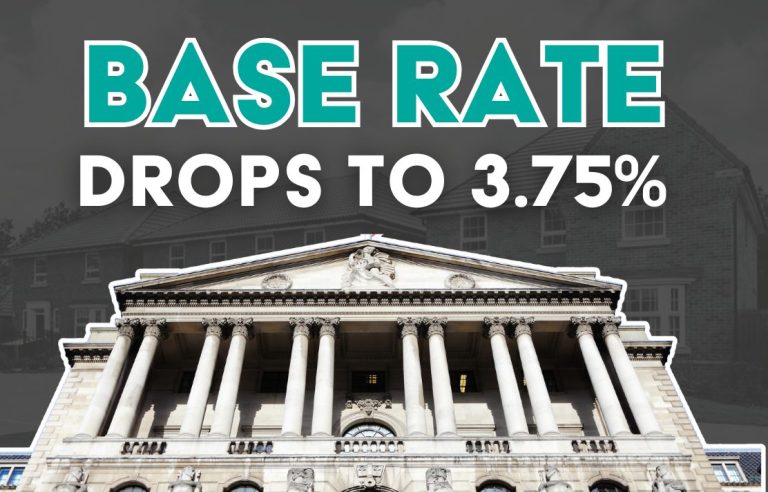Investing in property is often seen as a stable and rewarding way to grow your wealth, and Buy To Let (BTL) mortgages are a common route into the UK rental market. But with changes in tax rules, rising interest rates, and tighter regulations, many people are asking: is a Buy To Let mortgage worth it?
In this detailed guide, we’ll break down the pros and cons of Buy To Let, the financial realities you should be aware of, and how to decide if it’s the right move for your investment strategy.
What Is a Buy to Let Mortgage?
A Buy To Let mortgage is a specific type of loan used to purchase property with the intention of renting it out. Unlike a standard residential mortgage, lenders assess the viability of the loan based on the expected rental income rather than just your personal earnings.
Is a Buy to Let Mortgage Worth It in 2025?
Let’s explore each in detail to help you weigh up the pros and cons.
The Benefits Of Buy To Let
1. Rental Income
A well-located and well-managed property can provide a steady monthly income. This is especially true in high-demand areas such as university towns or city centres. Rental income is typically used to cover mortgage repayments, insurance, maintenance costs, and potentially provide profit.
2. Capital Growth
UK house prices have generally risen over the long term. Property values may increase over the years, providing the opportunity for capital gains when you sell. Even with slower growth forecasts, many landlords still see Buy To Let as a long-term investment that can contribute to their financial goals.
3. Tax-Deductible Costs
Landlords can still deduct some costs from their taxable income, including:
- Letting agent fees
- Maintenance and repair costs
- Landlord insurance
- Council tax and utility bills (if paid by you)
- Certain finance costs (limited mortgage interest relief)
4. Leveraging Your Investment
Buy to Let mortgages allow you to use leverage – borrowing money to buy a higher-value asset. This can magnify both profits and risks. With a 25% deposit, for example, you can control a property worth four times that amount.
The Risks Of Buy To Let
1. Buy to Let Mortgage Rates
As of April 2025, Buy to Let mortgage interest rates are still higher than those for residential mortgages. Many landlords are paying between 5.5% and 6.5%, depending on loan-to-value (LTV) ratios and fixed-rate terms. This can reduce rental yield, especially if the property is in a lower-rent area.
2. Larger Deposit Requirements
Most lenders require a minimum 25% deposit for a Buy To Let mortgage. Some may accept 20%, but these deals often carry less favourable terms. That’s a significant upfront cost, and with property prices still high in many regions, it can limit who can afford to invest.
3. Changes to Tax Relief
The phasing out of full mortgage interest tax relief has significantly affected landlord profits. Now, landlords receive a 20% tax credit on interest payments rather than deducting them from income.
For higher-rate taxpayers, this has made Buy To Let less lucrative unless the property is owned via a limited company (which comes with other admin and legal responsibilities).
4. Regulatory Burden
There’s an increased compliance around:
- Energy efficiency standards (EPC minimum rating requirements)
- Tenant deposits and rights
- Licensing in certain council areas
All add time, cost, and complexity to property letting.
5. Void Periods and Maintenance Costs
Rental properties aren’t always occupied. Void periods can impact cash flow, and landlords remain responsible for mortgage repayments and upkeep. Unexpected maintenance, such as boiler repairs or roof damage, can also eat into your profits.
Is Buy To Let Property Right For You?
You should ask yourself:
- Do I have the funds for a 25% deposit, plus other costs?
- Am I happy to be a landlord – or to pay a letting agent?
- Am I comfortable with risk and the potential for interest rate rises?
- Do I want to invest for long-term growth rather than quick profits?
If you answer “yes” to most of these, Buy To Let could be a worthwhile strategy for you.
Read our full buy to let mortgage guide here
When A Buy To Let Might Not Be Worth It
1. If You’re Relying on Short-Term Gains
Property prices may not rise as quickly in 2025 as they did in previous decades. Entering the market solely for quick profit is a gamble.
2. If Your Finances Are Tight
If you’re stretching your budget to cover a deposit, Buy To Let might not be the right investment. The additional costs and responsibilities can add up quickly.
3. If You Don’t Want to Be Involved
Even with an agent, you’re still responsible for the property. Legal disputes, property maintenance, and tenant turnover require time and involvement.
Tips To Maximise Your Buy To Let Investment
Choose the Right Location: Look for strong rental demand and future growth.
Budget Realistically: Factor in maintenance, voids, taxes, and fees.
Speak to a Mortgage Adviser: An expert can help you find competitive deals and avoid common pitfalls.
Consider Owning Through a Limited Company: Especially useful for higher-rate taxpayers.
Stay Up to Date with Legislation: Compliance helps avoid fines and ensures happy tenants.
While the landscape has certainly changed, Buy To Let can still be worth it for many investors in 2025, provided you go in with your eyes open and your finances in good order.
At UKMC, we help first-time and experienced landlords alike navigate the Buy To Let market. Whether you’re unsure if Buy To Let is right for you or you’re ready to apply for a mortgage, our expert team is here to help.
Call us – 01925 573328
Email – hello@ukmc.co.uk
Or fill in our contact form and one of our expert advisers will get in touch.
UK Mortgage Centre is a trading style of Refresh Mortgage Network Limited. Refresh Mortgage Network Limited is authorised and regulated by the Financial Conduct Authority. FRN – 826982. Registered in England & Wales: 11614569. As a mortgage is secured against your home, it could be repossessed if you do not keep up the mortgage repayments. The Financial Conduct Authority does not regulate some forms of buy-to-let mortgages. The Financial Conduct Authority does not regulate will writing and taxation and trust advice.







